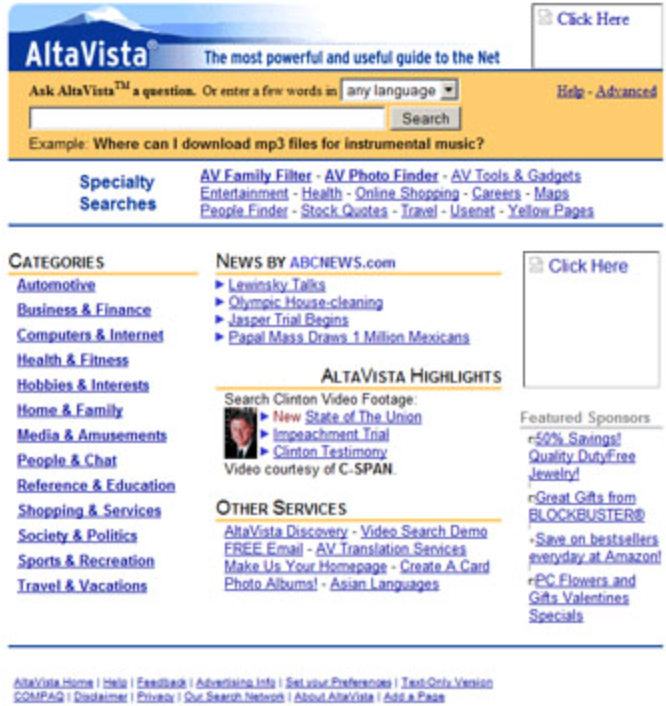SEO & Content Marketing FAQs

Here are a few of the SEO/Content Marketing questions I get a lot:
- How long have you been doing SEO?
- Can you just come in and ‘SEO’ our website?
- We produce website content ourselves—that cool?
- Can we review the content before it’s published to the website?
- But we need to make sure the new content fits our brand …
- Can we suggest topics?
- How many clients do you work with at one time?
- How long will it take to see results?
- After you SEO my site, can I ‘set it and forget it’?
- Why should my business hire you to do SEO?
- What kind of qualitative performance metrics and goals would you provide for an SEO campaign?
When Did You Start In SEO?
The first “dot-com” I worked for was an educational website in 2000.
I had been reporting and editing for print publications, but with this job I was writing copy intended solely for online publication.
I was also tasked with making sure our video-embedded online education modules showed up in directories like Yahoo, AltaVista and DMOZ.

One day, my boss called a meeting and said we needed our courses to show up in this new search engine we’d been hearing about called “Google.” So we came up with something we called “SOPS” (“Search Optimized Pages”).
You may recall those were the days when “SEO” and “quality content” were, to a great extent, mutually exclusive. Coming from a journalism background, I wasn’t happy to see keyword-stuffed nonsense outranking good writing, so I didn’t give SEO a lot of thought. When our online education company went out of business, I went back to writing for magazines and newspapers and (later) digital publications.
Over the next few years, while copywriting and editing here and there, I noticed that a lot of the “tricks” that worked for ranking business websites weren’t working any more. Google was starting to learn to recognize (and reward) better content instead of black-hat tricks and “hacks.” I saw my chance to get back into marketing, picked up where I left off, and SEO and content marketing have been my main focus for the last few years.
Can you just come in and “SEO” our website?
If only it were that simple.
My team and I usually handle all the content that’s published on-site and off-site (with the exception of social media and email marketing, although we work closely with those folks as well).
Perhaps your business has someone handling email marketing, social media marketing or paid ads and you’re happy with their results. Great!
We’ll augment what they are already doing and build on their success.
But their messaging needs to align with our efforts, so we’ll build and manage an integrated, comprehensive content calendar to make sure everyone is aligned, focused and working in tandem to meet specific milestones.
Our leadership team writes for our blog from time to time, and we’re going to keep doing that without talking to you about it. Cool?
Consider the excellent chefs hired by the best restaurateurs to manage their kitchens. And the best restaurateurs know better to wander into the kitchen during the lunch rush and start whipping up something new because she just saw a neat recipe on Tiktok.
Too many cooks spoil the broth.
If your team wants to contribute to the blog and other content resources, great! We just ask that you let us know before publishing anything so we can integrate it into the content calendar and make sure it’s properly optimized and promoted once published.
And ideally, the website content that contributed by your team will be written with our keyword strategy in mind. This doesn’t mean you’ll be restricted to topics we assign you. Rather, it means you can tell us what you WANT to write about, we can conduct the necessary keyword research, then we can provide you with a content brief to follow as you write the article.
Otherwise it will simply be filler written without a purpose, published without a plan to promote, and destined to languish, unread, on your website for years.
Can I review the content before it’s published to the website?
In cases where regulatory considerations dictate what can and cannot be said (our legal financial clients, for example, are often restricted with the things they can say), we can liaise with one internal stakeholder, who can suggest revisions to the content before it is published.
In most cases, however, making every new piece of content a back-and-forth process involving multiple stakeholders (all of whom have different priorities) becomes a massive bottleneck that inevitably hinders the success of the campaign.
Your team can always recommend edits/additions after the page is “live.” In most cases, your changes can be implemented before the new content is even even indexed by Google.
Don’t I need to review the content to make sure you’re adhering to our brand voice?
Your brand voice is one of the first things we acquaint ourselves with. Or, even more often, your brand voice is something we develop (with your input) over the course of the engagement.
Making sure new content adheres to the brand voice is something you are delegating to us. Working with me and my team means trusting us to get it right.
Can we at least suggest article topics or news items?
Of course! In fact, the more involved you are in topic discovery, the better.
We’ll handle the keyword research/audience research beforehand and develop a content brief for the article—that way the writer (whether it’s someone from my team or your team) will have a roadmap to writing a piece that is much more likely to connect with your audience.
Again, you’ll need to let us know before publishing anything so we can integrate it into the content calendar and make sure it’s properly optimized and promoted.
How many clients do you work with at one time?
At my last agency job, I had 23 monthly SEO clients at once! All of them were content marketing/SEO clients. Others also had social media, PPC and email marketing campaigns rolled into their monthly service.
My experience in SEO is varied and integrated horizontally with other marketing efforts, which is why I tell prospective clients they shouldn’t hire an SEO—they should hire a full-stack marketer who can look at their overall messaging and branding strategies, as well as (of course), their primary business objectives. All the site traffic in the world won’t do you any good if we ignore those strategies and objectives. And if your sales team isn’t ready for the phone to ring, all the phone calls in the world aren’t going to grow your sales. That’s why we work on your brand message and your sales funnel before we (blindly) write tons of blogs or try to get links from random websites. That’s the smart approach.
These days I work with fewer clients, but the businesses I work with are committed to growing their share of voice through content and SEO. The high-volume approach doesn’t let me be smart or strategic or have any real understanding of my clients’ goals. That’s why I rarely work with more than 10 clients at a time these days. And I never work with two local SEO clients in the same geographical market.
How long will it take to see results?
Repeat after me: No one in SEO can “guarantee” a result within a given time frame. Period. If someone calling themselves an SEO or digital marketer tells you otherwise, run in the other direction.
Understanding the nuances of ranking a business website means understanding that you can implement today’s best practices—especially the ones that will make a difference to your business—within a given timeframe, but setting hard deadlines for specific KPIs is a fool’s errand.
A long-distance runner can hire someone to plan an optimal meal schedule, ensure that she has the best running shoes available, and that she is training the exact way she should be training. Can the person she hires promise her that she will win next year’s Boston Marathon? Well, I suppose they can make a verbal promise—but they’re not being honest.
I promise to deliver what I say I’m going to deliver, on the schedule we agree to at the beginning of our relationship. I tell many new clients to allow six months to see significant improvements in rankings, especially in competitive local industries. I usually see improvements at the 3 and 4-month mark. But I still say “six months” because I prefer to under-promise and over-deliver.
After you SEO my site, can I ‘set it and forget it’?
Think of SEO as running up a down escalator. It takes work to get to the top, but you can get there with hard work and diligence. But if you stop working on it you will slowly go back down the search results.
That said, with a typical campaign a lot of the technical SEO can be correctly established in the early weeks and months of the campaign, allowing us to focus more on content and link-building as the campaign matures.
Why should my business hire you to do SEO?
You shouldn’t.
Don’t Hire an SEO, remember?
You can read every word on this page and we still won’t know if we’re a good match. Think of everything you’ve read as my dating profile. If you like it so far, gr
eat. Let’s go get a cup of coffee and talk about your business. After 30 minutes you or I might decide to just be friends. And that’s fine.
Don’t hire anyone who does not fully understand the challenges your business faces. Don’t hire anyone who doesn’t listen when you explain the frustration you felt when your last marketing efforts wasted your time and your money. Don’t hire anyone promising “solutions” that fail to align with your business objectives. Don’t keep working with a “ninja” or a “guru” or a “rock star” who consistently fails to deliver the performance you require.
I’ve worked “in-house” for a major ecommerce brand. I’ve worked as the SEO lead for a web development agency. I’ve produced the results I’m most proud of in an outsourced/consultancy capacity, helping businesses grow sales and site traffic in competitive industries and geographical markets.
What kind of performance metrics and goals would you provide for an SEO campaign?
That depends your answers to the questions I’ll ask in the discovery call.
Typically, I set up conversion goals (such as phone calls and site form submissions) in Google Analytics and track the customer journey leading up to those actions.
I test my sites and the optimizations I perform against user data to identify patterns that will give me actionable “next steps.”
No marketing efforts will start until we first analyze and understand industry landscape, customer profile, and competitive ecosystem.
No campaign can begin without understanding the industry we’re dealing with and the needs of the customer we’re attracting.
Now let’s go get that cup of coffee.